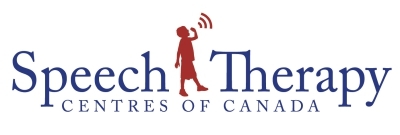Think back to a recent cocktail party you attended with distant relatives or unfamiliar co-workers in a new job setting…did you dread getting ready for the event? Did you feel awkward trying to start a conversation with your distant Aunt? Did you feel your heart pounding faster and harder as your new boss approached? Welcome to the world of many adolescents and adults, especially those on the Autism Spectrum or with an Acquired Brain Injury (ABI). Similar to those cocktail parties, social settings that require conversing, initiating and keeping conversations going can lead to feelings of anxiety, anger, confusion and even depression.
At the center of all our interactions lies the foundation of communication: to flourish academically, to build successful friendships, to develop professional relationships, and to create intimate bonds with our partners. However, the fundamental requirements of successful social communication are far from basic. One must have: the motivation to interact, be aware of their surroundings and how to modify them appropriately (eliminate distractions), recognize their own intentions, have the flexibility to shift perspectives, understand the “hidden” social conventions appropriate to different contexts, and formulate their response in an organized manner.
A Speech-Language Pathologist works with individuals who have difficulties with social communication using a one-on-one direct speech therapy model or through group speech therapy programs. You start increasing your or your child’s communicative competence by:
- Anticipating topics and/or vocabulary that will come up during the social interaction. Predicting conversational topics allows you to prepare ahead of time and thus increase your social confidence. E.g., if you or your child is going to a sports event, research about the teams, rules, scores, and players or if you will be attending a work conference; read about the lectures ahead of time and familiarize yourself with the content of the day.
- Using ice breakers that you find helpful in starting conversations, such as “it’s a beautiful day today” or “how is your day going?”
- Practicing the tricky skill of making small talk. You can do this in the car on the way to an appointment, in a coffee shop or even at the dinner table.
- Using surrounding context to guide the conversation, especially when stuck on what to say next to keep the interaction going. For example, if you or your child are at a baseball game, comment on their favourite player, the uniforms, a great pitch. If you are at a wedding, comment on the bride and groom, the food, their opinion of the band.
- Shifting the conversation back to the speaker. Many clients with ABI dread answering questions about their accident or the details of their recovery. Instead of going into detail, briefly state how you are doing and then divert the conversation back to the partner, for example, “I am doing well, thank you. I heard you started a new job, and how is that going?”
These are a few tips that can help build communicative competence. If you are concerned about someone’s social communication skills, speak with a Speech-Language Pathologist for additional suggestions, recommendations and/or strategies.
Ashleigh Wishen,
M.H.Sc. S-LP (C)
Speech-Language Pathologist, Reg. CASLPO
